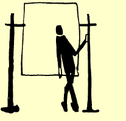What we do know is, if Schubert lived to Elliott Carter's current age, he would have witnessed the premiere of Mahler's 3rd. Oh my, isn't it kinky just to think about that?
One thing that classical composers beat the pop acts is the lasting of creativity. Name me one pop musician whose works at age 60 is not hopelessly overshadowed by their works at 25. Leonard Cohen and Joni Mitchell's late works are fine, but they are also highly predicable if you know their early works well. And Bob Dylan doesn't count either, I'd rather consider him as a genius artist who accidentally, but not necessarily, adopted the form of pop music, rather than a pop musician. That's why he is the only one in pop that exceeded the break through albums from younger years. No one made better albums than a 25 years old Bob Dylan (Blonde on Blonde), except the 60 years old Bob Dylan (Love & Theft).
On the other hand, it is common in classical music that the final works of composers stand well besides their best compositions, if not they are actually the summit of their creative career themselves. Mozart's clarinet concerto and requiem, Bach's Art of Fugue, and Rachmaninov's Symphonic Dances, that just to name a few. Time takes its toll on everyone, but I guess the old fashioned composers are lucky to keep themselves unharmed from groupies, drugs and endless tours of the same setlists;)
OK enough rant this time, here's the Spotify playlist of Swan Songs. Besides the aforementioned works, it also includes Tchaikovsky, Bruckner, Mahler, Sibelius, Lutoslawski and Schnittke's last symphonies, Berg's violin concerto in memory of Alma Mahler's daughter, Mendelssohn's last string quartet written after the death of his much beloved sister and female composer Fanny, and many others. It starts with Schubert's c major string quintet, and closes with Alfred Brendel's performance of Schubert's last piano sonata D.960 in his farewell concert in Vienna, 2008. I put two versions of Debussy's g minor violin sonata in it, one modern recording and one historical recording played by József Szigeti and Béla Bartók. For Beethoven I chose the last movement of the b-flat sting quartet Op.130, the substitution of the Grosse Fuge.
You can load the playlist of the last works of great composers to your Spotify by clicking Swan Songs, and enjoy this video from 20 years ago while waiting for the farewell concerts to be released on DVD. Now we have a lovely answer when the kids ask why we listen to music written mostly by dead people, we can ask them this instead:
"When you are 64, would you prefer to try to yell out 'I hope I die before I get old' on stage like when you were 24, or be able to play, even write a piece of music like this?";)




tanx for post http://panjere-mag.ir http://rseo.ir http://iadvertorial.ir
ReplyDeleteعکس پروفایل
ابزار وبلاگ
خرید رپورتاژ آگهی